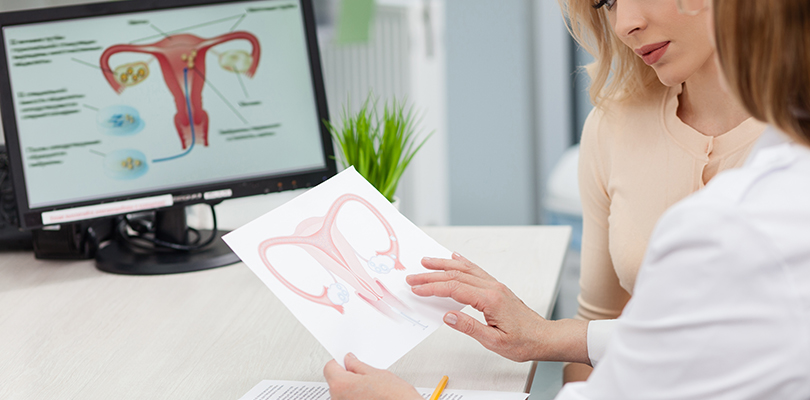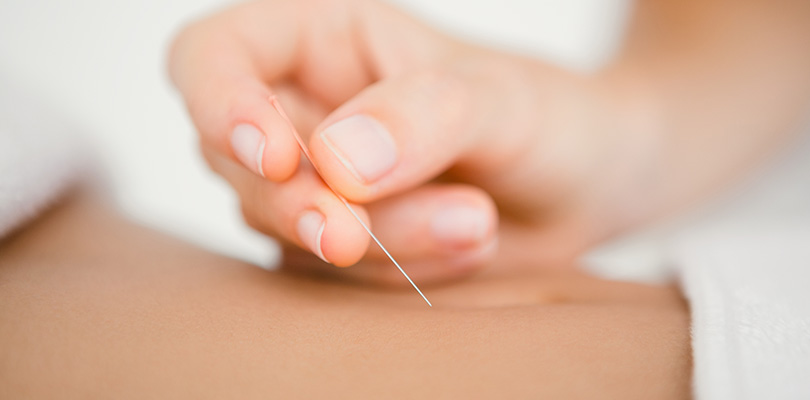What Is Polycystic Ovary Syndrome?
Polycystic ovary syndrome (PCOS) occurs when a woman's hormones are out of balance, causing problems with the reproductive process.
PCOS typically starts at puberty and causes irregular periods and later, difficulty getting pregnant. The condition may affect the way you look and may increase the risk of serious health problems later on – which may include type 2 diabetes, heart disease, and endometrial (uterine) cancer.
Most women with PCOS grow many small cysts on their ovaries. The cysts are not harmful but may lead to the hormone imbalances.
Early diagnosis and treatment can help control the symptoms and prevent long-term health problems.
What Are the Symptoms of PCOS?
- Irregular menstrual periods, or lack of menstrual periods
- Reduced or lack of ovulation, interfering with infertility
- Weight gain in the upper body and abdomen
- Persistent acne, oily skin and oily hair in adulthood
- Abnormal hair growth (facial, arms, chest, and abdomen)
- Uncontrolled blood sugar and type 2 diabetes
What Causes PCOS?
Researchers are investigating the cause, but have been unable to determine what triggers PCOS. Family history and genetics are considered to play a role.
PTSD is a mental health condition triggered by either experiencing trauma firsthand or witnessing or learning of a terrifying event that happens to others.
How Is It Diagnosed?
In diagnosing PCOS, your doctor will review your medical history and symptoms, and conduct a physical exam. A blood test will indicate whether hormones are unbalanced. You may need an ultrasound of the ovaries to help with diagnosis.
How Is PCOS Treated?
Various treatments are available for PCOS, and each depends on your symptoms and goals.
- If pregnancy is a goal, oral or injected fertility medications can help
- If you simply want regular periods and want to prevent pregnancy, birth control pills are a good option
- Birth control pills can also help with hair growth and acne
- The hormone progesterone can regulate periods
- Medical specialists can help with obesity and diabetes
- A non-hormonal medication used to treat diabetes can also improve fertility and aid with weight loss
How Can PCOS Be Prevented?
Researchers have not identified a way to prevent PCOS. However, you can avoid developing diabetes and heart disease through healthy lifestyle – proper diet, exercise and weight control.
How Can I Improve My Chances of Conceiving If I Have PCOS?
First, talk with your physician about specific fertility issues. To improve your chances of getting pregnant, doctors may advise:
- Folic acid (400 mcg. supplement a day)
- Diet rich in folic acid – leafy green vegetables, citrus fruits, dried beans, liver
- Limit caffeine to less than two caffeinated beverages daily
- Healthy well-balanced diet with plenty of vegetables, fruits, lean protein, and whole grains
- Exercise 20 to 30 minutes nearly every day
- Stay at a healthy weight







